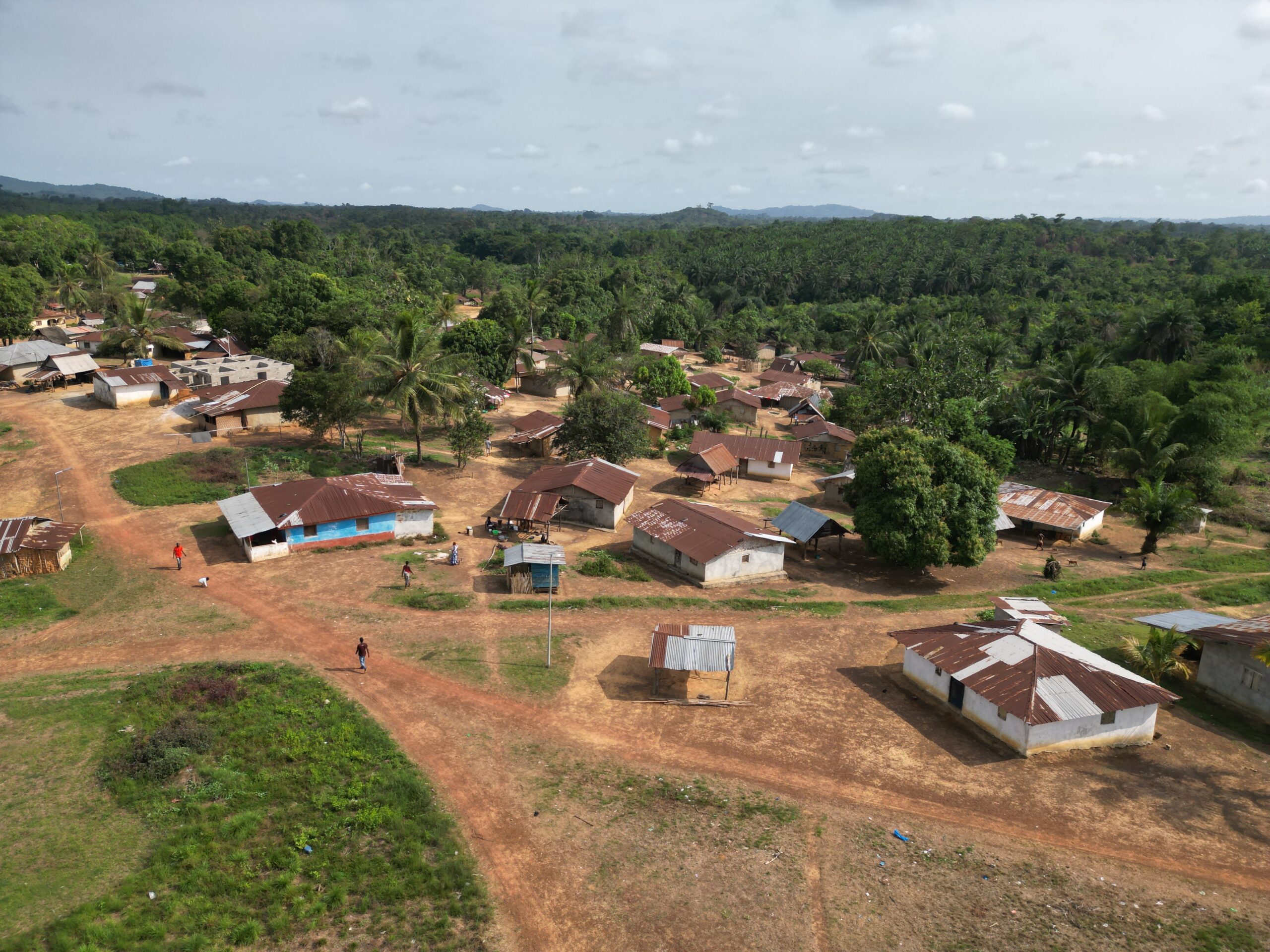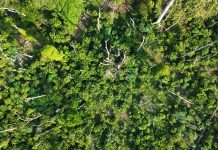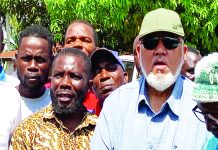Top: A drone shot of Compound Number Two in Marblee Clan, Grand Bassa County. The DayLight/James Harding Giahyue
By Esau Farr
COMPOUND NUMBER TWO, Grand Bassa County – Between 2019 and last year, Marblee Clan completed most of the steps in legalizing its customary land ownership, failing to harmonize boundaries with its neighbors.
Now, it has an opportunity to solve that problem and receive a deed following the launch of a new project over the weekend. The “Keeping the Promise” project targets Marblee and 38 other communities across eight counties. Parley Liberia, a Bong County-based NGO, Sustainable Development Institute (SDI), and the Foundation for Community Initiatives (FCI) will assist the communities. The International Land and Forest Tenure Facility provided US$3.56 million for the three-year project.
“We want you to get your land deed,” Dr. Raymond Samndong, Tenure Facility’s lead campaigner for Liberia, told a short ceremony in Compound Number Two, Grand Bassa County. “If you don’t have land, you don’t have an identity.”
“Communities need their deeds and that is the focus of this project,” said Gregory Kitt of Parley Liberia, the NGO directing the project.
Marblee Clan stopped at the boundary harmonization stage over disputes with Karblee and Gogowein, its western and eastern neighbors, respectively. Its dispute with Karblee Clan is over an area covering 2, 057 hectares of land, while the disputed land with Gogowein spans 264 hectares.
Under the Land Rights Act, communities must cut their boundaries with their neighbors. After that, the law requires the Liberia Land Authority (LLA) to conduct an official survey to grant their deeds.
Alexander Cole, FCI’s land rights campaigner, told The DayLight the NGO was talking to the Liberia Land Authority to assist in resolving Marblee’s land disputes. Cole said they would train members of the clan’s governance body known as the community land development and management committee (CLDMC).
Bendu Darsure, a women representative of the community stated that “The coming of the project into our community has made some of us know our rights to properties, especially land.”





Facebook Comments